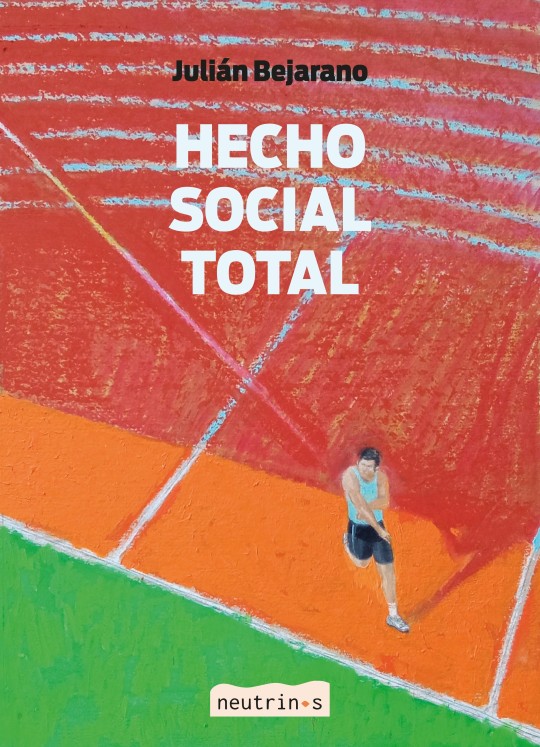#Arnaut Daniel
Explore tagged Tumblr posts
Text

Sir,

24 notes
·
View notes
Text
youtube
Arnaut Daniel (12th century) - il "miglior fabbro del parlar materno".
Sequentia
1 note
·
View note
Text
"Sovenha vos a temps de ma dolor" -- Be mindful in due time of my distress!






Making Queer History tags are poetry to me
4K notes
·
View notes
Text


Patricia Smith's "Ethel's Sestina" is one of ten sestinas highlighted in JSTOR Daily's article highlighting modern poets.
"The sestina form is often attributed to Arnaut Daniel, a twelfth-century Provençal troubadour writing in the Occitan language. Since then, the form has been adopted by countless poets across many different languages, including a lot of poets writing in English in the twentieth and twenty-first centuries."
Read nine more sestinas, freely available on JSTOR!
#jstor#jstor daily#poetry#national poetry month#patricia smith#sestina#modern poetry#alt text in image description!
184 notes
·
View notes
Text









Occitan Language
Tan m'abelís vòstra cortesa demanda, que ieu non-pòdi ni vòli m'amagar de vos.
– Dante Alighieri writing as Arnaut Daniel (1180–1200 AD) in Purgatorio
#occitanie#occitania#occitan#occitan language#french languages#occitan country#endangered languages#minority languages#france#south of france#mediterranean#mediterranean aesthetic#occitan aesthetic#languages#foreign languages#langblr#polyglot#language learning#sword catcher#the ragpicker king#the chronicles of castellane#romance languages#european languages#southern europe#medieval literature#french culture#provence#lenga d'oc#provençal#purgatorio
25 notes
·
View notes
Text

HECHO SOCIAL TOTAL
Julián Bejarano
Poesía entrerriana, 2023
ISBN 978-987-4430-30-4
76 páginas
Como un insomne que se sienta en la oscuridad a ver televisión hasta quedarse dormido, como un bot defectuoso inundando la sección de comentarios de un diario digital, el poema repite el vocabulario de los medios, pero invierte el efecto de esa repetición: donde los discursos de odio, las fake news y el lobby empresarial hacen de la reproducción una fuente de poder, la escritura vuelve a pasar por las palabras para desarmar su sentido en combinaciones impensadas. Hecho social total es un libro político ante todo porque construye un modo de escuchar y leer los discursos que nos hablan, y de este modo no pide ni pregona una transformación, sino que la efectúa en el lenguaje mismo del poema. Ana Rocío Jouli
Julián Bejarano nació en 1983. Vive en Paraná, Entre Ríos. Publicó los libros A Eda, por su dulzura (Ediciones de la intemperie, 2008), La prefabricada (Colección Chapita, 2009), Humito (Ese es otro que bien baila, 2010), Superclásico (Ese es otro que bien baila, 2011), la caja de poesía Los Materiales (que incluye los libros: El alguacil y la tucura, El cero dorado de marzo, Nunca quiero que la fiesta se termine, Farmacia y Los cimientos; Gigante, 2013), Camorra (Gigante, 2015), Ambiente Aluminio (Fadel&Fadel, 2017), Sombra Grande (Lomo, 2018) y Dinero (Slimbook, 2020). También publicó el libro Amor, traiciones de poemas de Arnaut Daniel (Gigante, 2014). Junto a Ariel Delgado creó al poeta entrerriano Román Sangoy, que publicó los libros Pillín (2010) y Las chicas de barrio son mejores cuando te lastiman (2012). Cofundó las editoriales Ese es otro que bien baila (2010-2011) y Gigante (2011-2017), y el proyecto virtual mal.ar (2023). Hecho social total conforma una trilogía iniciada con Dinero (2020), que culminará con la publicación de Liquidámbar be real.
Obra en tapa: Juan Hernández
4 notes
·
View notes
Text
2 notes
·
View notes
Text

This Healthy Beef & Broccoli Quinoa Stir-Fry is a nutritious and delicious meal that's perfect for busy weeknights. Packed with protein, fiber, and vitamins, it's a wholesome dish that satisfies both your taste buds and your nutritional needs. Plus, it's quick and easy to make!
Ingredients: 1 lb lean ground beef. 2 cups cooked quinoa. 2 cups broccoli florets. 3 cloves garlic, minced. 1 tablespoon ginger, minced. 1/4 cup low-sodium soy sauce. 2 tablespoons sesame oil. 2 tablespoons rice vinegar. 1 tablespoon honey. 1 tablespoon cornstarch. 2 green onions, thinly sliced. 1 tablespoon sesame seeds optional. Salt and pepper to taste.
Instructions: Honey, cornstarch, soy sauce, and sesame oil should all be mixed together in a small bowl. Put away. Use medium-high heat to warm up a big skillet. Break up the ground beef with a spoon as it cooks until it turns brown. Chop up some garlic and ginger and add them to the pan. Cook for one to two minutes, or until the food smells good. Add the broccoli florets and stir them in. Cook for three to four minutes, until the broccoli is just starting to get soft. Cover the beef and broccoli with the sauce. Mix everything together well to cover it all. Toss the cooked quinoa with the beef and broccoli in the skillet until it is all mixed together. Add two to three more minutes of cooking to let the flavors blend. Add pepper and salt to taste. If you want, you can add sliced green onions and sesame seeds as a garnish before serving.
Prep Time: 15 minutes
Cook Time: 20 minutes
Lgt Arnaut Daniel
0 notes
Text

Enjoy this raw vegan avocado cake that is full of creamy goodness and topped with fresh berries that are in season. You can enjoy this treat at any time because it tastes great and doesn't break your vegan lifestyle.
Ingredients: 2 ripe avocados. 1 cup dates, pitted. 1/2 cup raw almonds. 1/2 cup raw cashews. 1/4 cup coconut oil. 1/4 cup maple syrup. 1 tsp vanilla extract. Pinch of salt. Seasonal berries for topping.
Instructions: In a food processor, blend the dates, almonds, and cashews until they form a sticky dough-like consistency. Add in the avocados, coconut oil, maple syrup, vanilla extract, and salt. Blend until smooth. Press the mixture into a lined cake tin, ensuring an even layer at the bottom. Place the cake tin in the refrigerator to set for at least 2 hours. Once set, remove the cake from the tin and top with seasonal berries before serving.
Prep Time: 20 minutes
Cook Time: 0 minutes
Lgt Arnaut Daniel
0 notes
Text

Indulge in the rich and gooey delight of Chocolate Brownie Pudding. This dessert combines the flavors of a classic brownie with a luscious pudding for a heavenly treat that will satisfy your chocolate cravings.
Ingredients: 1 cup all-purpose flour. 1/2 cup unsweetened cocoa powder. 2/3 cup granulated sugar. 2 tsp baking powder. 1/2 tsp salt. 1/2 cup milk. 1/4 cup vegetable oil. 1 tsp vanilla extract. 1/2 cup semi-sweet chocolate chips. 1/2 cup chopped nuts optional. 1 cup hot water.
Instructions: Preheat your oven to 350F 175C. In a mixing bowl, combine the flour, cocoa powder, sugar, baking powder, and salt. Stir in the milk, vegetable oil, and vanilla extract until the batter is smooth. Fold in the chocolate chips and chopped nuts if using. Transfer the batter to a greased 9x9-inch 23x23 cm baking dish. Spread it evenly in the dish. Sprinkle the hot water evenly over the batter. Do not stir. Bake in the preheated oven for about 30-35 minutes or until the top is set and the edges are slightly crispy. Remove from the oven and let it cool for a few minutes before serving. Serve warm with a scoop of vanilla ice cream or whipped cream if desired.
Prep Time: 15 minutes
Cook Time: 35 minutes
Lgt Arnaut Daniel
0 notes
Text
Thinking how Dante in Purgatorio celebrates Arnaut Daniel as the best poet, Arnaut who walked in a ring of fire to expiate his disordered love and whose style was a trobar clus, it was obscure, the same way Guido, who talked about a disordered love, was celebrated as a poet both in De Vulgari Eloquentia and Purgatorio and especially for the quality of his language which was obscure and elitst something something Arnaut like a purified Guido something something Guido's presence amongst the lustfuls something something Guido's presence right before Virgil disappears like a generational change from Arnaut-Guido-Virgil to Dante
16 notes
·
View notes
Text
youtube
Arnaut Daniel - Chanson do'ill mot son plan e prim ·
Sequentia ·
0 notes
Text

A delicious and colorful couscous dish with the flavors of roasted red peppers and spinach. This easy-to-make recipe is perfect for a quick and satisfying meal.
Ingredients: 1 cup couscous. 2 cups vegetable broth. 1 cup roasted red peppers, chopped. 1 cup fresh spinach, chopped. 1/2 cup onion, finely chopped. 2 cloves garlic, minced. 2 tablespoons olive oil. 1/2 cup grated Parmesan cheese. Salt and pepper to taste.
Instructions: Warm up the olive oil in a medium-sized saucepan over medium-low heat. Put in the chopped onion and garlic and cook until the onion turns clear. After you add the couscous, keep stirring it for one to two minutes. Add the vegetable broth and boil it. Lower the heat, cover, and let it simmer for 8 to 10 minutes, or until the couscous is soft and the liquid is gone. Add fresh spinach and roasted red peppers, and stir them in. Cook for another two to three minutes, until the spinach wilts. Taking it off the heat, add the grated Parmesan cheese and mix it in. Add pepper and salt to taste. Enjoy while hot!
Prep Time: 10 minutes
Cook Time: 15 minutes
Lgt Arnaut Daniel
0 notes
Text

Indulge in this creamy and dairy-free cold brew coffee infused with the tropical flavors of coconut and a hint of sweetness from maple syrup. It's the perfect refreshment for your morning routine or a midday pick-me-up.
Ingredients: 1 cup cold brew coffee. 1/2 cup coconut milk. 1-2 tablespoons maple syrup adjust to taste. 1/2 teaspoon vanilla extract. Ice cubes.
Instructions: Ground coffee beans should be soaked in cold water for 12 to 24 hours to make cold brew coffee. Put coconut milk, maple syrup, and vanilla extract in a different container and mix them together until they are well mixed. Put ice cubes in a glass. Leave some space at the top of the glass and pour the cold brew coffee over the ice cubes. Pour the coconut milk mix over the coffee slowly. The two should mix together on their own. If you want to mix the flavors even more, stir them in slowly. If you think it needs more sweetness, add more maple syrup. Have fun with your vegan coconut cold brew!
Prep Time: 5 minutes
Cook Time: 5 minutes
Lgt Arnaut Daniel
0 notes
Text

A tasty and nutritious treat, homemade applesauce is ideal as a side dish or as a snack. It's simple to prepare and can be adjusted to your desired sweetness and spice level.
Ingredients: 6 apples, peeled, cored, and chopped. 1/2 cup water. 1/4 cup granulated sugar. 1/2 teaspoon ground cinnamon.
Instructions: In a large saucepan, combine the chopped apples and water. Cover and cook over medium heat for 15-20 minutes, or until the apples are soft and easily mashed with a fork. Using a potato masher or fork, mash the cooked apples to your desired consistency. Stir in the granulated sugar and ground cinnamon. Adjust the sweetness and cinnamon to your taste. Continue to cook for an additional 5 minutes, stirring occasionally. Remove from heat and let the applesauce cool slightly before serving. It will thicken as it cools.
Prep Time: 15 minutes
Cook Time: 25 minutes
Lgt Arnaut Daniel
0 notes
Text

Chocolate Frosted Death by Chocolate is a rich frozen hot chocolate cocktail made with chocolate liqueur and vodka. It's a delicious treat that any chocolate lover will love.
Ingredients: 4 oz chocolate liqueur. 2 oz vodka. 2 cups milk. 3 tbsp cocoa powder. 2 tbsp sugar. 2 cups ice cubes. Whipped cream for garnish. Chocolate shavings for garnish.
Instructions: Put chocolate liqueur, vodka, milk, cocoa powder, sugar, and ice cubes in a blender. Mix until it's creamy and smooth. Put into glasses. Shave chocolate and whipped cream on top. Serve right away.
Prep Time: 5 minutes
Cook Time: 0 minutes
Lgt Arnaut Daniel
0 notes